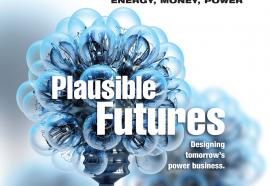Making Solar Grid-Friendly
Submitted by meacott on Tue, 2011-04-05 18:03The world’s power generation systems continue to transition to cleaner, more renewable and sustainable sources. That effort will be greatly aided by integrated and comprehensive grid interconnection solutions. Utility-scale, grid-connected solar photovoltaic (PV), as well as wind, has become increasingly attractive as a generation resource, both in terms of economics and operational fl exibility. The technology needed to interconnect these renewable power sources is now well proven in the field.









